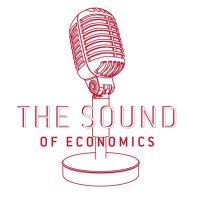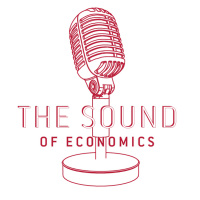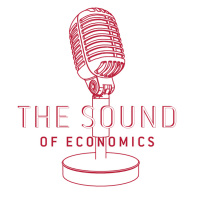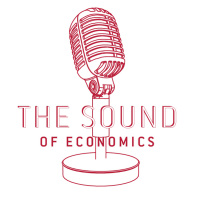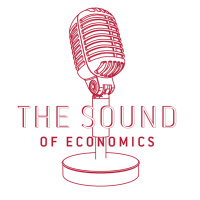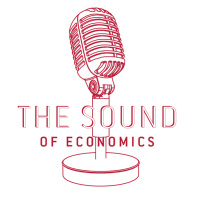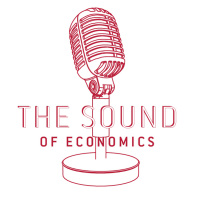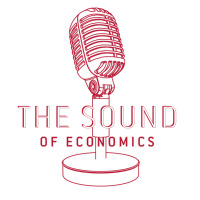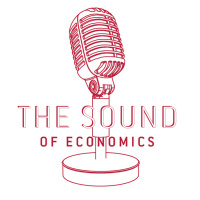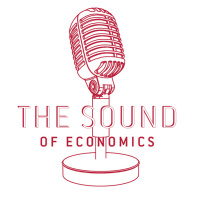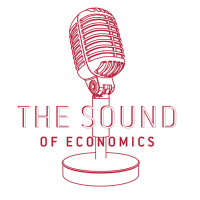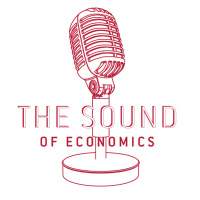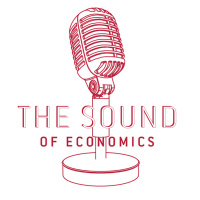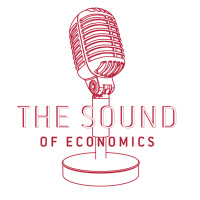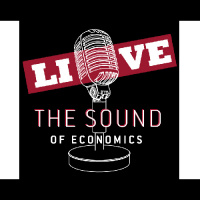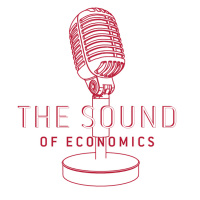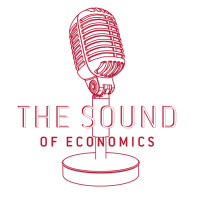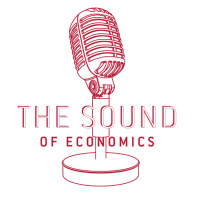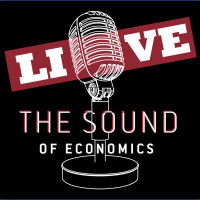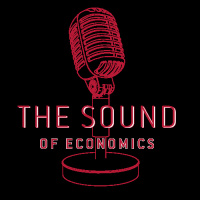Synopsis
Bruegel is the European think tank working in the field of international economics. Established in 2005, Bruegel is independent and non-doctrinal. It seeks to contribute to European and global economic policy-making through open, fact-based and policy-relevant research, analysis and debate.
Episodes
-
The geopolitical repercussions of the European Green Deal
03/02/2021 Duration: 30minThe European Green Deal is a plan to decarbonise the EU economy by 2050, revolutionise the EU’s energy system, profoundly transform the economy and inspire efforts to combat climate change. But the plan will also have profound geopolitical repercussions and is likely to impact partner countries adversely. In the latest paper co-written by Bruegel and the European Council on Foreign Relations, the authors map out the geopolitical implications and lay out a foreign policy agenda to manage the geopolitical aspects of the European Green Deal and lead climate change efforts globally. In this episode of The Sound of Economics, co-authors Jeremy Shapiro of the European Council on Foreign Relations, as well as Jean Pisani Ferry, Simone Tagliapietra and Guntram Wolff of Bruegel introduce their paper and give their insight on this issue. Related content: Leonard, M., J.Pisani-Ferry, J. Shapiro, S. Tagliapietra and G. Wolff (2021) ‘The geopolitics of the European Green Deal’, Policy Contribution 04/2021, Bruegel Even
-
A rushed deal or a rush to judgement?
27/01/2021 Duration: 36minOn 30 November 2020 after over 7 years of talks, the European Union and China concluded negotiations for a Comprehensive Agreement on Investment (CAI for short). The agreement is intended to increase investment between the EU and China by establishing a legal framework and common rules on issues ranging from state-owned enterprises to subsidy transparency and rules against the forced transfer of technologies. The deal replaces more than two dozen bilateral investment treaties between the EU’s 27 member states and China, improving market access for European companies operating — or intending to operate — in China and ensuring a level playing field and reciprocity when they do. Does the agreement actually live up to the above claims and seven years of expectation? To help us find out, in this episode of the Sound of Economics Giuseppe Porcaro is joined by Bert Hofman, the director of the East Asian Institute at National University of Singapore and Bruegel’s China expert Alicia García-Herrero, for a in dep
-
Where did the vaccine strategy go wrong?
20/01/2021 Duration: 33minOne year since the pandemic began, widespread vaccination has finally started. It would be a mistake however to say the end is in sight. Senior fellows Uri Dadush and J. Scott Marcus join Bruegel director Guntram Wolff to talk COVID-19 vaccine strategy, from testing and production to procurement and inoculation. Relevant publications: Dadush, U. (2021) ‘A matter of life and death: governments must speed up vaccination’ Bruegel Blog, 13 January Marcus, J.S. (2021) ‘Has the European Union squandered its coronavirus vaccination opportunity?’ Bruegel Blog, 6 January Demertzis, M. (2020) ‘Are we out of the woods yet?’ 14 December
-
Green transformation: a Polish perspective
13/01/2021 Duration: 35minPoland is sometimes characterised as the black sheep of EU climate policy: in 2019, more than 70 percent of the country’s electricity was generated by coal. In the meantime, it is closing down coal mines and discussing building a nuclear power plant in order to diversify its energy supplies. What is Poland’s climate policy and how is it evolving? Is the idea of Poland’s characterisation as a scapegoat of the failure of international climate ambitions misleading? In this episode of the Sound of Economics, Bruegel's Guntram Wolff and Georg Zachmann are joined by Michał Kurtyka, the Minister of Climate and Environment of Poland and former President of the COP24 in Katowice, considered by many as a climate champion in the country. They discuss current climate policy in Poland, the social impact of decarbonisation, how the EU’s recovery package can help smooth the climate transition, and the future of international climate diplomacy. Research mentioned: Bergamini, E. and G. Zachmann (2020) ‘Understanding the
-
The year that tested us all
21/12/2020 Duration: 44minAs the year draws to a close, Giuseppe Porcaro invites Maria Demertzis, André Sapir and Guntram Wolff to review this eventful year in economic policy and beyond. The guests also talk about a book that has marked them this year and finally, their hopes and wishes for the decade ahead. Events mentioned: Monetary policy after the pandemic, with Janet Yellen Together for Europe’s recovery and for a better, more sovereign Europe, with Olaf Scholz The green deal: Europe’s growth strategy, with Frans Timmermans Books mentioned: Zuboff, S. (2019) The Age of Surveillance Capitalism: The Fight for a Human Future at the New Frontier of Power, PublicAffairs, New York. Carreyrou, J. (2018) Bad blood: Secrets and Liies in a Silicon Valley Startup, Knopf, New York. Aral, S. (2020) The Hype Machine: How Social Media Disrupts Our Elections, Our economy, And Our Health–And How We Must Adapt ,New York Currency, New York. Bratton, B. H. (2016) The Stack: On Software and Sovereignty ,MIT Press, Massachusetts.
-
The new EU digital regulations: Explained
16/12/2020 Duration: 01h09minIn this episode of the Sound of Economics, Giuseppe Porcaro is joined by Maria Demertzis, J. Scott Marcus, Georgios Petroupolos, and Mario Mariniello, Bruegel experts on digital policy to delve into the latest EU digital regulations: the Digital Services Act and the Digital Markets Act. What is the Commission proposing? What connections do these two bills have, and what policy and market implication do they have?
-
The geopolitics of money
09/12/2020 Duration: 29minIn this episode of the Sound of Economics, Paola Subacchi, Professor of international economics and chair of the advisory board of the Global Policy Institute at Queen Mary University of London, and Bruegel senior scholars Alicia García-Herrero and Michael Leigh join Giuseppe Porcaro for an age old discussion but with a twist. They try to understand the geopolitical role of money, in other words, currencies and capital flows. While unconstrained capital flows cause afflictions of the global economy, the current debate on currencies is in fact driven by politics rather than economics, as Alicia argued in an opinion piece recently: Politics, not economics, demands a strengthened international role for the euro. What would the next US Treasury Secretary, Janet Yellen do on the dollar?
-
The political economy of climate transition
02/12/2020 Duration: 43minClimate transition is hotly debated in EU circles as it impacts all areas of policy: from the ambitious climate targets set by the President of the European Commission with the European Green Deal, to the discussions of the next budget of the Union and the recovery plan from the current pandemic. The topic is especially important for 2021 with a new US administration more likely to engage on climate change, a commitment for carbon neutrality in 40 years by China and the delayed COP26 under the leadership (or not) of the United Kingdom. Any European debate is certain to have an important impact on a regional and national level, but will also influence the global trajectory of climate policy. In this episode of the Sound of Economics, Giuseppe Porcaro hosts Heather Grabbe, director of the Open Society European Policy Institute in Brussels, Piotr Arak, Director of the Polish Economic Institute from Warsaw and Simone Tagliapietra, research fellow at Bruegel (joining from Italy) for a conversation on the pol
-
Steering the boat towards an unknown destination
25/11/2020 Duration: 31minThe economy of the euro area is forecast to contract by 8.7% in 2020 but grow by 6.1% in 2021. The drop in GDP in 2009, the worst year of the financial crisis, was just over 5%. There is no doubt that the drop we face today is much more significant, although it is expected to be short-lived with a sharp bounce back. However, all EU countries are currently going through a second COVID-19 wave exponentially worse than the first in terms of number of infections, albeit with fewer deaths (so far). Who knows what the real hit to the economy will be, and indeed how long it will be before we can resume normality? In this episode of the Sound of Economics, Giuseppe Porcaro is joined by Bruegel deputy director Maria Demertzis, and Nicola Viegi, Professor of Monetary Economics at the University of Pretoria, who is based in South Africa. They will explore the theme of uncertainty, highlighted by the pandemic, and how to plan policy interventions, especially monetary policy, in this climate of uncertainty. Maria Deme
-
Sizing up the world's largest trade deal
18/11/2020 Duration: 38minOn November 15 2020, the 10 members of the Association of Southeast Asian Nations (ASEAN), Australia, China, Japan, New Zealand and South Korea signed the Regional Comprehensive Economic Partnership (RCEP), creating the world’s largest free-trade bloc in terms of gross domestic product. Bruegel fellows from around the world - Uri Dadush, based in Washington DC; Alicia Garcia-Herrero based in Hong Kong and Suman Bery based in India, bring their knowledge and geopolitical expertise to a heated discussion on this deal, hosted by director Guntram Wolff. What is the RCEP really about? Who will benefit? Why did India withdraw from negotiations on the deal? What implications will it have for Europe and the United States? And more importantly, what should they do?
-
The big brother is back?
13/11/2020 Duration: 31minFollowing Biden's victory in the US presidential election, what will the transatlantic relationship look like? Would it be a big relief, or nothing much will change? And will we see a shift from ‘America first’ to ‘buy American’? This week Bruegel director Guntram Wolff is joined by Esther de Lange MEP, Vice Chair of the European People's Party Group, to talk us through what this all means for Europe, and more importantly for its place in the world. What next for European strategic autonomy? How will this affect climate policies? How can EU level the playing field while not getting squeezed by the US and China? With Mrs de Lange’s experience within the Delegation for relations with the People's Republic of China, we also discuss that, as the US is trying to decouple economically with China, what would be the right strategy for Europe?
-
A European common tax space
03/11/2020 Duration: 29minTaxation is one of the few areas of financial policy which the general public has great interest in, as it affects their everyday life directly. But when we talk about it on a European level, it has much to do with tax distortion and competition in the single market. In this episode of The Sound of Economics, Bruegel director Guntram Wolff is joined by Sven Giegold MEP from the European Green Party. Giegold envisions a European common tax space, where minimum tax rates will be applied on a European level. They also discuss tax reporting regulations for large corporations, VAT reform, and how the Commission, European Financial Intelligence Unit and potentially a European financial police force can target money laundering and financial crime.
-
A tale of two presidencies
28/10/2020 Duration: 33minBorn and bred in the United States, Bruegel scholars Rebecca Christie and J. Scott Marcus are joined by director Guntram Wolff, on a special edition of The Sound of Economics, to talk about the upcoming US election, the implications it will have for American and European Economic policies, as well as the impact on future transatlantic relations. Rebecca and Scott will walk us through the most crucial domestic topics, from voter suppression to shrinking republican demographic, from the covid-19 pandemic to US healthcare system. On international issues, they look at the approaches the two administrations will likely take on climate, trade, data privacy, as well as financial regulations. While a Biden presidency might be the hope to reinitiate sensible discussions and restore alliance and partnerships, a Trump administration will very much likely continue its path on isolationism. Find out more from Bruegel scholars for the upcoming US election: The future of EU-US trade relations after the US election Wha
-
Demography and globalisation: reversing trends
21/10/2020 Duration: 33minIn this episode of The Sound of Economics, we invite Charles Goodhart and Manoj Pradhan to talk about their most recent book: 'The Great Demographic Reversal’. They argue that trends in demography and globalisation, especially the stunning rise of China combining both, have greatly weakened labour bargaining power and led to subsequent disinflation, inequality and falling interest rates. But just as these demographic and globalisation trends are now reversing, labour bargaining power will rise again, bringing with it more inflation, less inequality and rising interest rates. The coronavirus pandemic will only accelerate this reversal. Bruegel scholars Maria Demertzis and Guntram Wolff join the authors for a conversation on ageing societies, waning inequality, as well as an inflation revival.
-
The future of EU-UK relations (again!)
13/10/2020 Duration: 56minOn 15-16 October the European Council will take stock of the implementation of the withdrawal agreement and review the state of the negotiations on the future EU-UK partnership. Leaders will discuss preparatory work for all scenarios after 1 January 2021. The timetable is very tight, with October seen as the last deadline for reaching an agreement that could then be ratified in time for entry into force by the end of the current transition period. In this live recording session of The Sound of Economics, Bruegel’s scholars took a step back and provided the background, as well as outline the key issues at stake necessary to follow the discussions at the Council and understand the ongoing negotiations. We also engaged in an informed debate with the audience on the post-Brexit scenarios. The podcast host, Giuseppe Porcaro, was joined by Maria Demertzis, André Sapir, and Guntram Wolff. To read more about Bruegel's research on Brexit, please check: https://www.bruegel.org/tag/brexit/.
-
Without good governance EU recovery could fail
07/10/2020 Duration: 23minThe European Union recovery fund could greatly increase the stability of the bloc and its monetary union. But the fund needs clearer objectives, sustainable growth criteria and close monitoring so that spending achieves its goals and is free of corruption. In finalising the fund, the EU should take the time to design a strong governance mechanism. In this episode, Guntram Wolff, director of Bruegel, is joined by MEP Luis Garicano, vice president of Renew Europe, who is also an economist and was heavily involved in the discussion on Next Generation EU, the new recovery instrument that the EU proposed for the Recovery and Resilience Facility. On this topic, they discuss the key concerns on how to ensure EU-borrowed money will be well-spent by the member states. MEP Garicano shares his insights from the Parliament of where this debate currently stands. Read the Opinion of Guntram wolff on the topic: https://www.bruegel.org/2020/09/without-good-governance-the-eu-borrowing-mechanism-to-boost-the-recovery-coul
-
The Future of Globalisation
30/09/2020 Duration: 01h01minIn this episode, we propose a full lecture about the future of globalisation by Dani Rodrik, Professor of International Political Economy, at the John F. Kennedy School of Government, of Harvard University. Rodrik argues that the model of hyper globalization we have been pursuing is unsustainable and that we have an opportunity to embark on a sounder, healthier globalisation. And he outlines his views on what such a globalisation might look like. The Lecture took place during the Bruegel Annual Meetings and it was followed by a lively discussion between Dani Rodrik and André Sapir, who is a Senior Fellow at Bruegel, which we have recorded and included in this podcast.
-
Global Energy Fundamentals
23/09/2020 Duration: 33minAs we move away from fossil fuels and toward clean energy solutions, the complexity of the global energy system has increased. With his new book published by Cambridge University Press, Global Energy Fundamentals, Simone Tagliapietra cuts through this complexity with a multidisciplinary perspective of the system, which encompasses economics, geopolitics, and basic technology. In this episode of The Sound of Economics Guntram Wolff, director of Bruegel, discusses with the author the current status and future prospects of the global energy system.
-
The State of the Union going forward
16/09/2020 Duration: 57minOn 16 September 2020 Ursula von der Leyen, President of the European Commission, delivered her first State of the Union address before the European Parliament. In addition to looking back at the past year, she presented the priorities for the year ahead, focusing on initiatives such as the European Green Deal and the Digital Strategy. A conversation between: Giuseppe Porcaro, Head of Outreach and Governance, Bruegel Alicia García-Herrero, Senior Fellow, Bruegel André Sapir, Senior Fellow Guntram B. Wolff, Director
-
For a better, more sovereign Europe
09/09/2020 Duration: 52minThis is part of a special feature of the Sound of Economics reporting highlights from Bruegel Annual Meetings, which happened between 1 and 3 September 2020. Usually physically gathering hundreds of people in Brussels every year, the Annual Meetings are the flagship event of Bruegel. This year, due to the pandemic, we held the event entirely online. For this episode of the Sound of Economics we report the full speech delivered on 3 September by the Minister of Finance of Germany, Olaf Scholz, touching upon the key issues Europe is facing for its economic recovery and its own sovereignty in a complex global setting. After the speech you will be able to follow as well a lively conversation Between the Minister, Guntram Wolff, director of Bruegel, and Maria Demertzis. more information about Bruegel Annual Meetings on www.bam.bruegel.org

